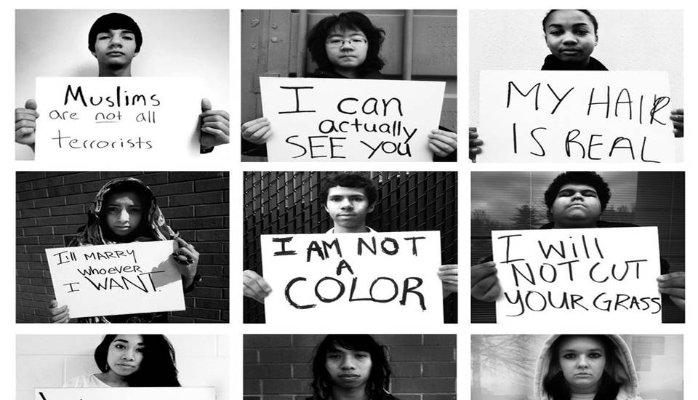5 Social Psychology Studies: How do Humans “Tick”?

How do people “tick”?
Simple question, but it doesn’t equate to a simple answer.
We at Psych2go became absorbed with this topic! Below, we gathered 5 psychological research studies that can greatly aid introverts and social anxiety victims with better navigating their human interactions towards a more positive avenue.
1.You will be liked more if you aren’t perfect (The Pratfall Effect).
Perfection is untouchable, invincible and unlikeable.
I formerly worked for a woman who never showcased any flaw. Not going to lie, she was drop dead gorgeous and carried a long list of achievements. Sure, she was stunning to the naked eye…but that’s it. I, nor could anyone else, could grow close to her.
Why? Because she was, unfortunately, non-relatable.
Those who never possess any flaws or display their mistakes are perceived as less likable than those who have the occasional pimple or those who sometimes have clumsy feet.
Making a mistake draws people closer to you. Mistakes makes you relatable. Mistakes make you human. Mistakes make you likeable.
Tested by Psychologist Elliot Aronson, participants listened to recordings of people answering a quiz. In specific recordings, one can hear a person knocking over a cup of coffee (aka a mistake). Participants were asked to rate the quizzers on likability. The coffee spill group came out on top (Lee, 2016).
Universal Conclusion:
The occasional mistake or spiritual flaw can work to your benefit by making you a more likeable person.
2. Love is all we really need to be happy (Harvard Grant study).

Over 250 male Harvard undergraduates were followed for 75 years, researchers examining various aspects of their lives.
One gentleman, even had attempted suicide, began the study with the lowest rating for future stability in comparison to the other participants
At the end? He was one of the happiest. Why? Psychiatrist George Vallient, the study’s longtime director, explains: “He spent his life searching for love”.
Valliant goes on to explain that there are two pillars of happiness: “One is love. The other is finding a way of coping with life that does not push love away” (Gregoire, 2013).
Universal conclusion:
Posses a loving personality and strive to surround yourself with a loving environment.
3. No one notices your failures as much as you think (The Spotlight Effect).

Please trust me: i’m the Queen Bee when it comes to thinking everyone is judging every little detail about me. My cousin once told me something very profound. Ready for it?
My dear cousin simply told me no one cares or likes me THAT much to notice every imperfect quality. He said that even if they do notice, no one has time to spend that much effort judging that one pimple on my chin or the few grammatical errors I make via text message.
The notion that people are always viewing us under a microscope is completely invalid. By us thinking people are always constantly highlighting our flaws, we create unnecessary paranoia and self-doubt in our minds.
A team of Psychologists tested the Spotlight Effect Theory at Cornell University. They asked a group of participants to wear an embarrassing t -shirt and they tallied how many people noticed what they were wearing the embarrassing t shirt. About 25% of passer byers noticed the embarrassing t shirt, but that’s a small percentage (Lee, 2016).
Universal Conclusion:
When you aren’t feeling up to par that day: simply relax. Please recognize that you are NOT under the spotlight as much as you think and no one is shining a bright critiquing flashlight at you. Live knowing everyone has their own daily lives to live and no one pays as close attention to us in a negative manner as much as we think.
4. We are happier and healthier when we have high social status (Oscar Winners study).

Everyone needs to feel socially intact, even introverts, social anxiety victims and those that claim they do not like people. Feeling as if society likes you can equate to having a higher self esteem which, in return, will bring us more happiness and success.
This theory was tested by Researchers from Canada as they found that Academy Award-winning Actors and Directors lived longer than those who were nominated, but lost. “Our main conclusion is simply that social factors are important … It suggests that an internal sense of self-esteem is an important aspect to health and health care.” says Donald Redelmeler, the leader Author of the experiment (Gregoire, 2013).
Universal Conclusion:
Introverts, social anxiety victims and those who claim they aren’t “people people”: please do not socially isolate yourself. This study proves that to have health, happiness and success, we MUST feel apart of the world in a social manner. We aren’t saying to go out and become the most popular guy/girl in the world, what we’re saying is that you must feel as if you positively belong in social society too.
5. Our minds easily navigate to stereotypes (John Bagh’s experiments).

Being an Asian American, I have MANY experiences in which people judged me based on my ethnicity.. “Are you a bad driver?” “Are you good in math?” “Are you submissive to men?”
Of course i’d be lying if I said some generalizations don’t apply to me, but experiencing people putting me in broad categories makes me make a strong effort to not judge others.
NYU psychologist John Bargh’s experiments on social behavior revealed that:“Stereotypes are categories that have gone too far. When we use stereotypes, we take in the gender, the age, the color of the skin of the person before us, and our minds respond with messages that say hostile, stupid, slow, weak. Those qualities aren’t out there in the environment. They don’t reflect reality” (Gregoire, 2013).
Universal Conclusion:
Stereotyping is something we all do, even myself sometimes. However, making hasty generalizations can lead us to draw narrow minded conclusions about entire populations.
—————————————————————————————————————-
We here at Psych2go would love to hear your thoughts! Have you experienced someone liking you more after you made a mistake? Do you think love is all it takes to make us happy? Have you been classified in a stereotypical way? Share with us!
—————————————————————————————————————
References:
Franklin-Faye, A. (2015, March 17). Alone Inside Their Own Head-Social Stereotypes and Students. Retrieved September 6, 2017, from https://www.linkedin.com/pulse/alone-inside-own-head-social-stereotypes-students-franklin-faye/
Gregoire, C. (2013, October 18). 10 Psychological Studies That Will Change What You Think You Know About Yourself. Retrieved September 11, 2017, from http://www.huffingtonpost.com/2013/10/18/20-psychological-studies-_n_4098779.html
Lee, K. (2016, March 18). 6 Psychological Effects That Affect How Our Brains Tick. Retrieved September 11, 2017, from https://blog.bufferapp.com/6-powerful-psychological-effects-that-explain-how-humans-tick
Oscar winners mostly American: Study. (2017, February 06). Retrieved September 11, 2017, from http://bostondesiconnection.com/oscar-winners-mostly-american-study//
Post, W. (2017, April 17). All you need is love – and funding: 79-year-old Harvard study of human happiness may lose grant money. Retrieved September 11, 2017, from http://nationalpost.com/health/researchers-say-there-is-more-to-learn-about-happiness
The Pratfall Effect: How Being Imperfect Makes You More Likeable. (2015, January 16). Retrieved September 11, 2017, from https://psych2go.net//pratfall-effect-imperfect-makes-likeable/
The Spotlight Effect. (2017, May 24). Retrieved September 11, 2017, from https://corporatecommunicationexperts.com.au/the-spotlight-effect/



I feel like a million dollars when I interact with bands I see in concert after the show.